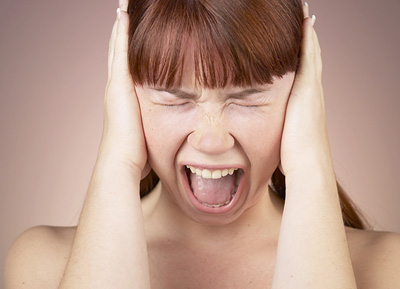 New Health Guide
New Health Guide
Everyone worries at some point or another and this is completely natural. Someone has anxiety disorder if they worry to an extent that interferes with their well-being, health, or job. Anxiety disorders may lead to physical symptoms like insomnia or headaches that make it hard to function in daily life.

An anxiety disorder is a type of serious mental illness. For those with these disorders, fear and worry are overwhelming and constant and may be crippling. There are several types of anxiety disorders and each can range from mild to severe anxiety.
|
Anxiety Disorder Type |
Description |
|
Generalized anxiety disorder (GAD) |
Those with GAD will feel constantly worried and anxious, despite not worrying about a specific problem. In order to be diagnosed, a person must have the extreme and daily worrying for six months or more. It is more common in women than men and tends to be treated with some combination of medication and/or cognitive-behavioral therapy. |
|
Social anxiety disorder (social phobia) |
The anxiety symptoms for those with social phobia are stress and anxiousness in social situations, including eating with a few friends or public speaking. Someone with this condition dreads social situations due to fear of embarrassment or judgment. It is equally likely among men and women, but there may be a genetic predisposition. It can be treated with therapy and/or medications. |
|
Obsessive-compulsive disorder (OCD) |
Those with OCD will obsess about specific concerns or thoughts, such as something happening to someone they love and will create routines to help cope with their obsessions. Repetitive behavior (such as rechecking alarm clocks or following strict routines) can indicate OCD and it affects everyone regardless of age and gender. It is treated with medication as well as psychotherapy to deal with specific anxieties and fears. |
|
Panic disorder |
This disorder is accompanied by sudden intense anxiety episodes including severe physical symptoms. Someone may think they will die or have a heart attack during a panic attack. Possible physical symptoms include dizziness, sweating, chest pain, palpitations, and shortness of breath. The attacks can occur at any time without warning. This disorder is more common among women and is treated with medications and/or cognitive therapy. |
|
Post-traumatic stress disorder (PTSD) |
Someone experiences PTSD following witnessing or being part of a traumatic or violent event (natural disasters, car accidents, rape, war crimes, etc.). Those with PTSD will have flashbacks to the experience and may therefore avoid situations and people that remind them of the event, making them easily startled. Treatment involves medications and/or therapy in which you talk through your experiences. |
Experts are unsure of the exact cause for anxiety disorders. They do know, however, that as with other mental illnesses, an anxiety disorder does not indicate poor upbringing, a character flaw, or personal weakness. Scientists continue to study mental illness and keep finding further evidence that many disorders are due to multiple factors, including environmental stress and changes within the brain.
During psychotherapy, you work with your therapist in order to reduce symptoms of anxiety and it is effective for treating generalized anxiety disorder. One of the most effective forms of psychotherapy for generalized anxiety disorder is cognitive behavioral therapy. It is usually a short-term treatment in which you learn specific skills that help you get back to activities previously avoided from anxiety. Symptoms disappear as you keep building on success.
There are several kinds of medications for treating anxiety disorders. Always discuss them with your doctor so you can learn the risks, benefits, and potential side effects. Antidepressants are typically the first option for treatment. These include the SNRI (serotonin norepinephrine reuptake inhibitor) and the SSRI (selective serotonin reuptake inhibitor) classes.
Buspirone is an anti-anxiety medication and can be used for a longer period of time. It will usually be several weeks before it is fully effective.
Benzodiazepines are sometimes prescribed for relieving anxiety symptoms. They may be addictive, so they aren’t ideal for those with a history of drug or alcohol abuse and are usually just used for short-term relief of acute anxiety. Options include lorazepam (Ativan), diazepam (Valium), chlordiazepoxide (Librium), and alprazolam (Xanax, Niravam).
Cognitive therapy works to identify false, unhelpful or harmful thoughts that can cause anxiety or depression. The therapist then works with you to help change your methods of thinking so you avoid these concepts and make your thought patterns more helpful and realistic. This therapy is usually in weekly 50 minute sessions and usually requires homework, such as keeping a diary of thoughts during anxiety.
This therapy works to change behaviors that harm or don’t help. In the example of phobias, it is the response or behavior to your fear that is harmful, so the therapist works to change this response. It relies on multiple techniques based on the circumstances and conditions and needs several sessions.
Although you can’t prevent anxiety disorders, you can lessen or control symptoms: